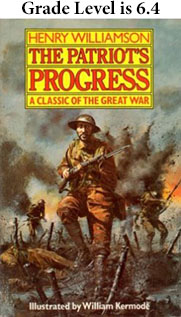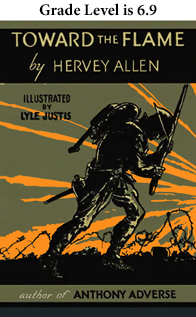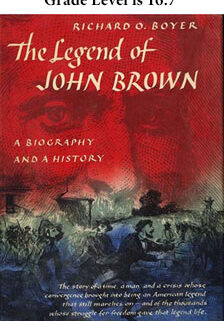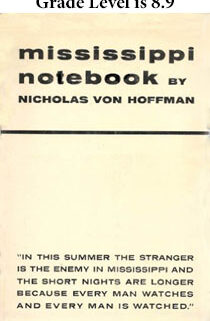The Patriot’s Progress by Henry Williamson
The epub format below is for your Apple and Android devices including Send-to-Kindle.
If you or your students want to download directly from this web site to an Amazon device, you can use the mobi format below. When you find the mobi file in ES File Explorer, it will then open in the Kindle app on your tablet. If you download an epub file to your Amazon tablet, it will also open if you have an app such as Overdrive on your tablet. The Kindle app offers an excellent reading experience to start with. Overdrive may need some customization of font size.
Download mobi file here.
Reviews
From Goodreads:
Very unexpected memoir/novel of WW I — totally different from the many I have read. Five “phases” each are one long paragraph — not conventional in any way. “Stream of consciousness” comes to mind, but some of it is more “stream of impressions” — hard to describe, other than to say it’s all immensely powerful. Talk about “fog of war” — this is “black night of war.”
“Very unexpected” because when I ordered it I thought it was a straight memoir. Not quite!
Call it 4.5 stars. I’ll give it 5 stars for impact and 4 stars for “enjoyability,” whatever that is.
I did like it better than Henri Barbusse’s “Under Fire” semi-autobiographical novel, which is said to be the first novel to come out of WW I (published while to war was still in progress).
From the New York City Tribune (Herschel Brickell) 20 July 1930:
“Patriot’s Progress” is the attempt of a finished literary artist who has full command of his medium, and who was in the mess himself, to portray Everyman at War. [Takes reader through the tale.]
The undercurrent that lies beneath the whole book seems to mean that wiser men than John bullock have no business to let him and his kind go dumbly and uncomprehendingly into wars. . . . Mr Williamson’s battle scenes are extraordinarily good. . . .
[“The Patriot’s Progress”] will be of especial interest to those who know the other work of its author, because it shows him in a changed mood as well as a changed manner. He has suppressed that sensitivity . . . that makes him seem sentimental at times; he writes with feelings so deeply harrowed, . . . and the effect is all the stronger.
From The Nation, 17 September 1930; short and to the point:
Mr. Williamson, in his luminous descriptive prose, has written a second fine war book. It is the story of a young English private who might well have been named Everyman. For we are not shown the inner life of John Bullock in those respects wherein he differed from his fellows but we recognise him at once because he typifies his fellows. The reader follows Everysoldier from the time he joins up with high hopes and inflamed spirits on through his terrible ordeals and into the Valley of the Shadow [note the nod to Bunyan and the Bible] of agony to his emergence, crippled, forever handicapped. The story is short, graphic and haunting. It belongs among the best of the increasing number of war memorials in literature.
Oakland Tribune California, 13 July 1930:
Henry Williamson Increases His Stature With “The Private’s Progress,” Courageous and Candid Book of a War Private
. . . His use of abruptly broken sentences, his forceful punctuation, tell so much more than even his own precise and brilliant verbage could otherwise. . . .
If more such narratives of the war are to be written, let them be by those of the greatness of soul and the literary equipment of Williamson.





